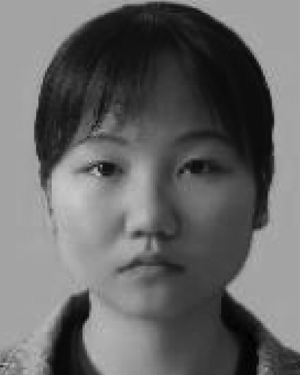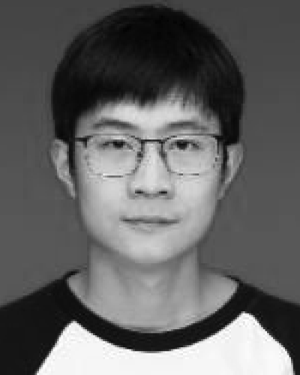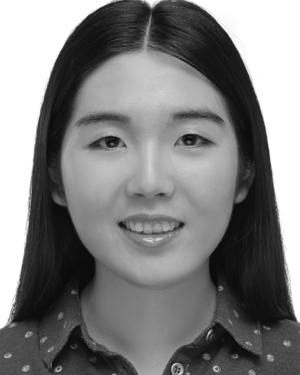Abstract:
Point cloud registration plays an important role in 3-D computer vision. Local feature-based registration as a kind of effective and robust method has two critical steps:...Show MoreMetadata
Abstract:
Point cloud registration plays an important role in 3-D computer vision. Local feature-based registration as a kind of effective and robust method has two critical steps: descriptor generation and transformation estimation. This article proposes a novel local feature descriptor termed local normal deviation statistic histogram (LNDSH) and an accurate transformation estimation method named two-point-based sample consensus with compatibility ranking (2SAC-CR). Our LNDSH is generated on a local reference axis (LRA), and fully encodes geometric and spatial information by six attributes in which a new attribute named mean normal deviation value (mndv) is proposed. mndv encodes mean normal deviation at each point, which is not influenced by the error of an LRA. In 2SAC-CR, an effective compatibility ranking is first conducted to increase the possibility of capturing correct correspondences. Then, an LRA-based hypothesis generation and a novel hypothesis verification strategy are alternately implemented based on the ranking to ensure an accurate and efficient “hypothesis generation and verification.” Finally, the maximum consensus is used to generate the output transformation, further reducing the error of the result. Extensive experiments conducted on six standard datasets verify that LNDSH has high descriptiveness and strong robustness, and 2SAC-CR possesses high accuracy and strong robustness. Rigorous comparisons with the state-of-the-art show the overall superiority of our methods.
Published in: IEEE Transactions on Instrumentation and Measurement ( Volume: 72)
Funding Agency:

School of Internet, Anhui University, Hefei, China
Bao Zhao received the M.S. degree in mechanical manufacture and automation from the He Fei University of Technology, Hefei, China, in 2014, and the Ph.D. degree in mechanical engineering from Shanghai Jiao Tong University, Shanghai, China, in 2020.
He is currently a Lecturer with Anhui University, Hefei. His research intersets include 3-D registration, 3-D local shape description, and pattern recognition.
Bao Zhao received the M.S. degree in mechanical manufacture and automation from the He Fei University of Technology, Hefei, China, in 2014, and the Ph.D. degree in mechanical engineering from Shanghai Jiao Tong University, Shanghai, China, in 2020.
He is currently a Lecturer with Anhui University, Hefei. His research intersets include 3-D registration, 3-D local shape description, and pattern recognition.View more

School of Internet, Anhui University, Hefei, China
Jiahui Yue is currently pursuing the bachelor’s degree with the School of Internet, Anhui University, Hefei, China.
Her research interests include 3-D registration and pattern recognition.
Jiahui Yue is currently pursuing the bachelor’s degree with the School of Internet, Anhui University, Hefei, China.
Her research interests include 3-D registration and pattern recognition.View more

School of Internet, Anhui University, Hefei, China
Zhen Tang is currently pursuing the bachelor’s degree with the School of Internet, Anhui University, Hefei, China.
His research focuses on 3-D local shape description and registration.
Zhen Tang is currently pursuing the bachelor’s degree with the School of Internet, Anhui University, Hefei, China.
His research focuses on 3-D local shape description and registration.View more

School of Mechanical Engineering, Shanghai Jiao Tong University, Shanghai, China
Xiaobo Chen received the B.S. degree from Shanghai Jiao Tong University, Shanghai, China, in 2001, the M.S. degree from the University of Michigan, Ann Arbor, MI, USA, in 2003, and the Ph.D. degree from Shanghai Jiao Tong University, in 2009.
He is currently a Lecturer with the School of Mechanical Engineering, Shanghai Jiao Tong University. His major research interests include machine vision and image processing.
Xiaobo Chen received the B.S. degree from Shanghai Jiao Tong University, Shanghai, China, in 2001, the M.S. degree from the University of Michigan, Ann Arbor, MI, USA, in 2003, and the Ph.D. degree from Shanghai Jiao Tong University, in 2009.
He is currently a Lecturer with the School of Mechanical Engineering, Shanghai Jiao Tong University. His major research interests include machine vision and image processing.View more

School of Computer Science and Technology, Anhui University, Hefei, China
Xianyong Fang (Member, IEEE) is currently a Full Professor with the School of Computer Science and Technology, Anhui University, Hefei, China. He was a Post-Doctoral Researcher with the Computer Science Laboratory for Mechanics and Engineering Sciences (LIMSI-CNRS), Orsay, France. He also ever worked as a Visiting Scholar with the Department of Computer Science, University of Houston, Houston, TX, USA. His research intere...Show More
Xianyong Fang (Member, IEEE) is currently a Full Professor with the School of Computer Science and Technology, Anhui University, Hefei, China. He was a Post-Doctoral Researcher with the Computer Science Laboratory for Mechanics and Engineering Sciences (LIMSI-CNRS), Orsay, France. He also ever worked as a Visiting Scholar with the Department of Computer Science, University of Houston, Houston, TX, USA. His research intere...View more

School of Electronic Information and Electrical Engineering, Shanghai Jiao Tong University, Shanghai, China
Xinyi Le (Member, IEEE) received the B.S. and B.E. degrees from Tsinghua University, Beijing, China, in 2012, and the Ph.D. degree from the Chinese University of Hong Kong, Hong Kong, in 2016.
She is currently a Lecturer with the School of Electronic Information and Electrical Engineering, Shanghai Jiao Tong University, Shanghai, China. Her research interests include neural networks, distributed optimization, robust contro...Show More
Xinyi Le (Member, IEEE) received the B.S. and B.E. degrees from Tsinghua University, Beijing, China, in 2012, and the Ph.D. degree from the Chinese University of Hong Kong, Hong Kong, in 2016.
She is currently a Lecturer with the School of Electronic Information and Electrical Engineering, Shanghai Jiao Tong University, Shanghai, China. Her research interests include neural networks, distributed optimization, robust contro...View more

School of Internet, Anhui University, Hefei, China
Bao Zhao received the M.S. degree in mechanical manufacture and automation from the He Fei University of Technology, Hefei, China, in 2014, and the Ph.D. degree in mechanical engineering from Shanghai Jiao Tong University, Shanghai, China, in 2020.
He is currently a Lecturer with Anhui University, Hefei. His research intersets include 3-D registration, 3-D local shape description, and pattern recognition.
Bao Zhao received the M.S. degree in mechanical manufacture and automation from the He Fei University of Technology, Hefei, China, in 2014, and the Ph.D. degree in mechanical engineering from Shanghai Jiao Tong University, Shanghai, China, in 2020.
He is currently a Lecturer with Anhui University, Hefei. His research intersets include 3-D registration, 3-D local shape description, and pattern recognition.View more

School of Internet, Anhui University, Hefei, China
Jiahui Yue is currently pursuing the bachelor’s degree with the School of Internet, Anhui University, Hefei, China.
Her research interests include 3-D registration and pattern recognition.
Jiahui Yue is currently pursuing the bachelor’s degree with the School of Internet, Anhui University, Hefei, China.
Her research interests include 3-D registration and pattern recognition.View more

School of Internet, Anhui University, Hefei, China
Zhen Tang is currently pursuing the bachelor’s degree with the School of Internet, Anhui University, Hefei, China.
His research focuses on 3-D local shape description and registration.
Zhen Tang is currently pursuing the bachelor’s degree with the School of Internet, Anhui University, Hefei, China.
His research focuses on 3-D local shape description and registration.View more

School of Mechanical Engineering, Shanghai Jiao Tong University, Shanghai, China
Xiaobo Chen received the B.S. degree from Shanghai Jiao Tong University, Shanghai, China, in 2001, the M.S. degree from the University of Michigan, Ann Arbor, MI, USA, in 2003, and the Ph.D. degree from Shanghai Jiao Tong University, in 2009.
He is currently a Lecturer with the School of Mechanical Engineering, Shanghai Jiao Tong University. His major research interests include machine vision and image processing.
Xiaobo Chen received the B.S. degree from Shanghai Jiao Tong University, Shanghai, China, in 2001, the M.S. degree from the University of Michigan, Ann Arbor, MI, USA, in 2003, and the Ph.D. degree from Shanghai Jiao Tong University, in 2009.
He is currently a Lecturer with the School of Mechanical Engineering, Shanghai Jiao Tong University. His major research interests include machine vision and image processing.View more

School of Computer Science and Technology, Anhui University, Hefei, China
Xianyong Fang (Member, IEEE) is currently a Full Professor with the School of Computer Science and Technology, Anhui University, Hefei, China. He was a Post-Doctoral Researcher with the Computer Science Laboratory for Mechanics and Engineering Sciences (LIMSI-CNRS), Orsay, France. He also ever worked as a Visiting Scholar with the Department of Computer Science, University of Houston, Houston, TX, USA. His research interests include virtual reality, computer vision, and medical image processing.
Xianyong Fang (Member, IEEE) is currently a Full Professor with the School of Computer Science and Technology, Anhui University, Hefei, China. He was a Post-Doctoral Researcher with the Computer Science Laboratory for Mechanics and Engineering Sciences (LIMSI-CNRS), Orsay, France. He also ever worked as a Visiting Scholar with the Department of Computer Science, University of Houston, Houston, TX, USA. His research interests include virtual reality, computer vision, and medical image processing.View more

School of Electronic Information and Electrical Engineering, Shanghai Jiao Tong University, Shanghai, China
Xinyi Le (Member, IEEE) received the B.S. and B.E. degrees from Tsinghua University, Beijing, China, in 2012, and the Ph.D. degree from the Chinese University of Hong Kong, Hong Kong, in 2016.
She is currently a Lecturer with the School of Electronic Information and Electrical Engineering, Shanghai Jiao Tong University, Shanghai, China. Her research interests include neural networks, distributed optimization, robust control, and intelligent manufacturing.
Xinyi Le (Member, IEEE) received the B.S. and B.E. degrees from Tsinghua University, Beijing, China, in 2012, and the Ph.D. degree from the Chinese University of Hong Kong, Hong Kong, in 2016.
She is currently a Lecturer with the School of Electronic Information and Electrical Engineering, Shanghai Jiao Tong University, Shanghai, China. Her research interests include neural networks, distributed optimization, robust control, and intelligent manufacturing.View more


